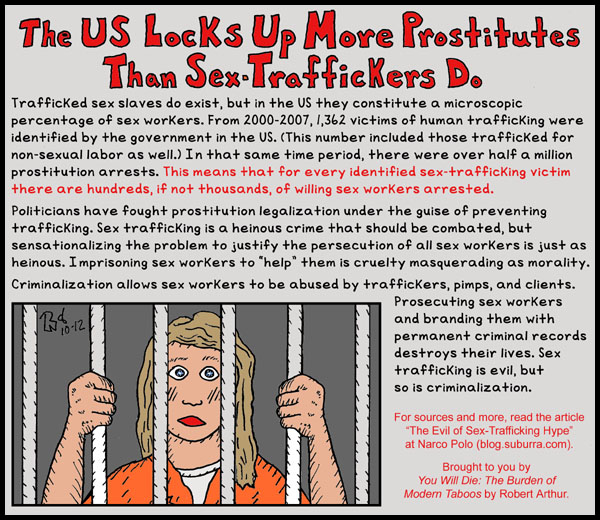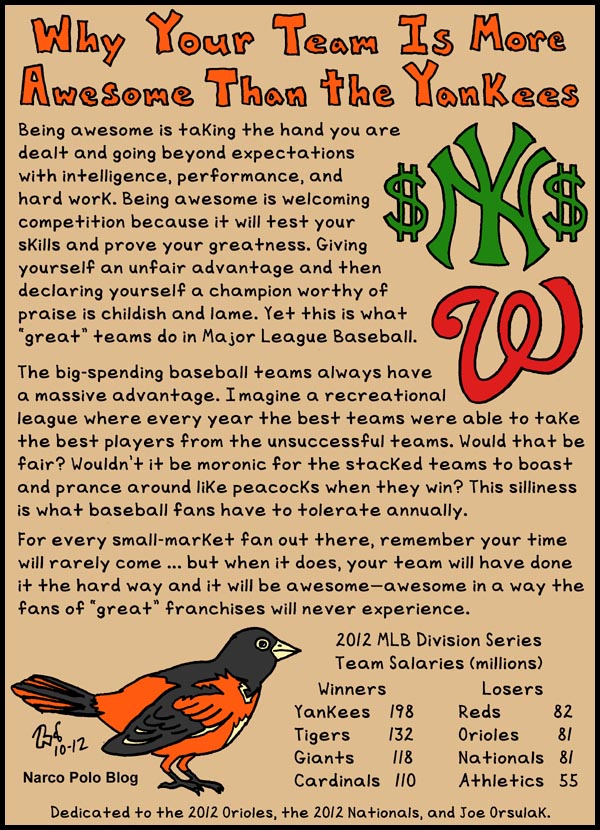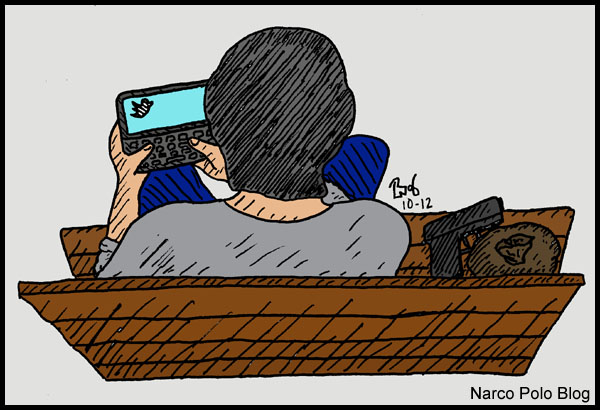Posted: October 30th, 2012 | Filed under: civil liberties, prostitution | 7 Comments »

In America, our government locks up exponentially more prostitutes than sex traffickers do. Trafficked sex slaves do exist, but in the United States they constitute a microscopic percentage of sex workers. From 2000–2007, 1,362 victims of human trafficking were identified by the federal government in the United States. (4) (This number included those trafficked for non-sexual labor as well.*) In that same time period, there were over half a million prostitution arrests. (3) This means that in America for every identified sex-trafficking victim there are hundreds, if not thousands, of willing sex workers arrested by law enforcement.
Bolstered by anti-sex feminists and fundamentalist Christians, American politicians have fought the legalization of prostitution under the guise of preventing sex trafficking. The assertion that legalizing sex work promotes sex trafficking is counter-intuitive and there is “absolutely no evidence” to support it.** (8)
The false nexus between legalization and trafficking was exposed by the British. In the United Kingdom, where prostitution is legal, sensationalism about the trafficking of sex slaves led to a massive crackdown using every police force in the country. In 2007 and 2008, 822 brothels, flats, and massage parlors were raided. They did not find a single person who had forced anybody into prostitution. (2)
Sex trafficking is a heinous crime that should be combated, but sensationalizing the problem in order to persecute all sex workers is just as heinous. Imprisoning sex workers to “help” them is cruelty masquerading as morality.
Driving prostitution underground imperils the safety of all sex workers. Criminalization is what allows them to be abused by traffickers, clients, pimps, and the police. (7) Prosecuting sex workers and branding them with permanent criminal records destroys their lives. Sex trafficking is evil, but so is criminalization.
(For more Narco Polo postings and cartoons on sex work go here.)
* It is likely that sexual slavery accounted for only a small minority of this number. In a 2005 Nation article, Suzanne Tomatore, an attorney who heads the Immigrant Women and Children Project of the Association of the Bar of the City of New York was quoted as saying that the “vast majority” of her clients were trafficked into domestic work. (6)
** Studies of the “Swedish model” that make this claim have been thoroughly discredited. See Maggie McNeill’s synopsis of an Australian governmental analysis or Dr. Laura Agustín’s writings on the topic. (5, 1)
Meet Some Sex Workers
To hear the voices of some proud, intelligent, and fabulous sex workers check out the blogs The Honest Courtesan and Bound, Not Gagged. An entertaining and witty Twitter feed of an active sex worker is Nun Ya’s @Ishfery.
This post is dedicated to the sex-worker rights activist, Robyn Few, who passed away last month. She patiently answered my queries years ago. You can learn more about her life here and read a New York Times article on her activism here.

Sources
1. Laura Agustín, “Trying to Prove Swedish Law Reduces Trafficking: Garbage In, Garbage Out,” theLocal.se, 16 Aug. 2010. LINK
2. Nick Davies, “Inquiry Fails to Find Single Trafficker Who Forced Anybody Into Prostitution,” Guardian, 19 Oct. 2009. LINK
3. There were 653,500 prostitution related arrests from 2000–2007. “Easy Access to FBI Arrest Statistics 1994–2008,” OJJDP.gov, 2011, ret. 7 Apr. 2012.
4. Jerry Markon, “Human Trafficking Evokes Outrage, Little Evidence,” WashingtonPost.com, 23 Sep. 2007. LINK
5. Maggie McNeill, “Down Under,” The Honest Courtesan (blog), 9 June 2011. LINK
6. Debbie Nathan, “Oversexed,” TheNation.com, 2005 Aug. 29, p. 3. LINK
7. An Illinois study found that police accounted for 30% of all reported abuse, compared to 4% arising from pimps. Noy Thrupkaew, “A Misguided Moral Crusade,” NYTimes.com, 22 Sep. 2012. LINK
8. Ronald Weitzer, “Moral Crusade Against Prostitution,” Society, Mar./Apr. 2006, p. 37.
Posted: October 13th, 2012 | Filed under: Uncategorized | Comments Off on Why Your Team Is More Awesome Than the Yankees

*** Outside of the links, text below is same as in cartoon. ***
Being awesome is taking the hand you are dealt and going beyond expectations with intelligence, performance, and hard work. Being awesome is welcoming competition because it will test your skills and prove your greatness. Giving yourself an unfair advantage and then declaring yourself a champion worthy of praise is childish and lame. Yet this is what “great” teams do in Major League Baseball.
The big-spending baseball teams always have a massive advantage. Imagine a recreational league where every year the best teams were able to take the best players from the unsuccessful teams. Would that be fair? Wouldn’t it be moronic for the stacked teams to boast and prance around like peacocks when they win? This silliness is what baseball fans have to tolerate annually.
For every small-market fan out there, remember your time will rarely come … but when it does, your team will have done it the hard way and it will be awesome—awesome in a way the fans of “great” franchises will never experience.
2012 MLB Division Series Team Salaries (millions)
Winners
Yankees 198
Tigers 132
Giants 118
Cardinals 110
Losers
Reds 82
Orioles 81
Nationals 81
Athletics 55
Dedicated to the 2012 Orioles, the 2012 Nationals, and Joe Orsulak.
Links
- 2012 Major League Baseball Team Salaries, USAToday.com. LINK
- Frank Deford, “Until a Salary Cap, MLB Outcomes Will Remain Predictable,” SportsIllustrated.CNN.com, 7 Apr. 2010. LINK
- Neil deMause, “Does Baseball Need a Salary Cap?” ESPN.GO.com, 30 Mar. 2006. LINK
Posted: October 11th, 2012 | Filed under: civil liberties, drugs, marijuana | Comments Off on How to Write About Your Crimes on the Web

In America, it is not illegal to write about your past crimes, and the following is a guide to doing it online. I am an attorney who has practiced criminal defense law, however, this article merely provides general legal information—not legal advice.
Any defense attorney will tell you that it is almost never prudent to make statements about your past crimes. This is particularly true online as it creates evidence, often permanent, that can be used in your prosecution. Unless you are masking your identity with software like Tor, every web site that you visit can record your computer’s Internet Protocol (IP) address. Without masking, this IP address is also delivered with every e-mail you send.
Nevertheless, even if the only precaution you take is to use a pseudonym it is highly unlikely you will be tracked down by law enforcement if you do it in a global forum and only talk about low-level crimes like sex work or drug use. It is not because the authorities cannot find you, but because it is not worth their time. Even the simple act of filing a warrant to discover an IP address is usually not worthwhile for multiple reasons:
- They do not know if you are lying.
- They would have to prove that it was you that used your computer and your pseudonym.
- They would have to have some evidence in addition to the internet admission.
- They often do not know if the crime occurred in their jurisdiction.
- They often do not know if the crime occurred outside of the statute of limitations.
There are three things you can do to increase the odds you will not be pursued. The most obvious is to hide your identity and any clues to your identity. Talking about a crime on a social network like Facebook, even with an alias, is risky as profiles provide other identifying information.
In forums that discuss drug use the acronym SWIM is often used instead of “I.” SWIM stands for “someone who isn’t me.” Using SWIM is better than using a first-person narrative but more creative obfuscation would be better. For example, saying a friend did the described activity.
Second, do not reveal the location of the crime. Law enforcement is bound by its jurisdiction. Police are significantly less likely to pursue a low-level crime if they are unsure if it occurred in their jurisdiction. For example, Philadelphia police are not going to waste time investigating something that probably occurred in another municipality or another state. For this reason, writing about crimes in a local forum, like the Littlestown Crocheting Message Board, is not wise.
Federal authorities have broader jurisdiction but rarely pursue low-level crimes, and they would almost never waste resources investigating a low-level crime that may have occurred abroad.
Third, do not disclose when the crime happened. Most crimes have a time limit on how long they are allowed to be prosecuted. These limits are called statutes of limitations. Law enforcement is unlikely to investigate low-level crimes that may no longer be open to prosecution.
Writing about your crimes online is rarely advisable, however, writing about low-level crimes in global forums has scant chance of spurring investigation if you use these precautions.
Links
- Criminal statute of limitations laws by state: LINK
- Facebook’s procedures for law enforcement seeking a user’s data: LINK
- Rocco Parscandola, “NYPD Forms New Social Media Unit to Mine Facebook and Twitter for Mayhem,” NYDailyNews.com, 10 Aug. 2011. LINK
- Tor’s website: LINK
Bonus
The following tweets by Mary Wanna? are examples of oversharing online. Follow Marry Wanna? on Twitter at @the_high_life.










